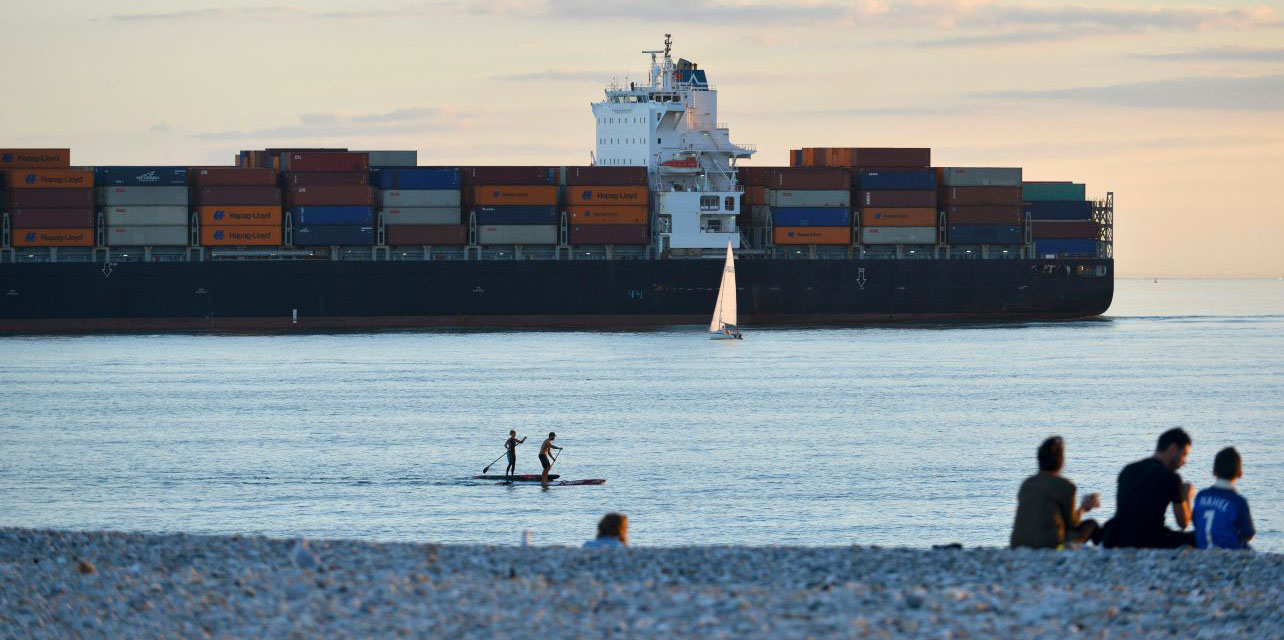Resources
Shore power for cleaner Washington ports
Plugging polluting diesel ships into clean electric power saves lives, improves air quality and reduces climate pollution. Pacific Environment works in a coalition to advocate for policies in Washington to reduce air pollution and other environmental impacts from shipping in the Salish Sea. One such policy is an emissions standard requiring ocean-going ships to reduce pollution from diesel engines. This can be achieved by plugging into shore power.
Urge SCAQMD to adopt a strong rule for cleaner air and health
Now is the time for bold action! Local air quality regulators must adopt a strong ISR for Ports to cut emissions now and fast-track clean technologies. Urge SCAQMD to adopt a strong rule for cleaner air and health.
Pacific Environment 2024 Grant Application
Pacific Environment 2024 Grant Application
We are very excited to announce that our 2024 Grant Application is now live. Through this grant opportunity, Pacific Environment aims to fund multi-level organizations, including community-based groups, environmental justice organizations, and environmental organizations.
University of Southern California: How to Measure Air Pollution and Its Effects
Measuring air pollution is crucial for understanding its impact on human health and the environment. According to the World Health Organization (WHO), air pollution is responsible for 4.2 million premature deaths each year worldwide. In the United States, approximately 137 million people live in areas with unhealthy levels of air pollution, and it is estimated that air pollution contributes to over 100,000 deaths each year. I think once you get the chance to review this resource, you’ll find it provides valuable insights about the urgent need for effective measures to reduce air pollution and protect public health.
Long Beach: Stop fossil gas at your port!
Long Beach leaders are currently considering plans that would facilitate building new fossil gas stations at our port (also known as “bunkering”), a decision that would harm our community and exacerbate the climate crisis by increasing fossil fuel pollution and emissions. The Port of Long Beach — one of the largest and busiest ports in the U.S. — is considering updates to its Port Master Plan that would expand permissibility for liquefied natural gas (LNG) bunkering to fuel LNG ships at the port for decades to come.
U.S. EPA Ports Primer for Communities
Ports Primer for Communities Office of Transportation and Air Quality (EPA-420-B-20-013). March 2020. An Overview of Ports Planning and Operations to Support Community Participation.
Campaign: Stop LNG in Long Beach
The Port of Long Beach is considering plans to allow development of a new fossil fuel facility for ships powered by methane emitting liquefied natural gas (LNG). LNG is not a clean fuel. Port of Long Beach must stop
fossil fuel expansion and invest in a livable, just climate future during our most decisive decade on climate action.
Policy Model: National Zero-Emission Shipping Policy – U.S. Clean Shipping Act 2022
Bring this to your national government! Congressman Alan Lowenthal (D-Calif.), along with original co-sponsor Congresswoman Nanette Barragán (D-Calif.), introduced H.R. 8336, the Clean Shipping Act of 2022. This bill becomes the first stand-alone legislation to zero out pollution from all ocean shipping companies that do business with the United States.
Policy Model: City Zero-Emission Shipping Resolution – City of Los Angeles Resolution on Maritime Industry Decarbonization
Bring this to your local government! The Los Angeles City Council unanimously voted to adopt Councilmember Nithya Raman’s resolution calling on Los Angeles’ top maritime importers to commit to making all port calls to the San Pedro Port Complex, which includes the Port of Los Angeles, on 100% zero-emissions ships by 2030.
News + insights
City leaders introduce historic ordinance to protect community health and climate
Newark leaders introduce a historic ordinance to stop fossil fuel expansion, cut port pollution and protect public health and frontline communities.
Blame game won’t solve California’s climate and energy crisis
On Friday, May 30, California Assemblymember Jasmeet Bains (D-Delano) publicly called for Liane Randolph, chair of the California Air Resources Board (CARB), to resign. Chair Randolph’s testimony before the Assembly Utilities and Energy Committee was clear, nuanced and aligned with CARB’s long-standing mandate: to protect public health and advance clean air and climate goals.
Pacific Environment announces new California climate policy director
Pacific Environment welcomes Davina Hurt as its new California Climate Policy Director, effective January 30, 2025. Prior to joining Pacific Environment, Davina Hurt was appointed to the California Air Resources Board by Governor Gavin Newsom in December 2020 and served on the board for more than four years. Ms. Hurt is an attorney, two-term councilwoman and past mayor of the City of Belmont, Calif. With expertise in transportation, energy, waste management and stationary sources, Davina Hurt is dedicated to addressing environmental and social challenges through equity, innovation and bold community leadership.
Pacific Environment Celebrates Introduction of Washington Statewide Shore Power Policy Bill
The landmark bill will direct the Department of Ecology to adopt a statewide shore power policy that will accelerate shore power installation across the state to reduce air pollution and other environmental impacts from large vessels at Washington’s ports.
